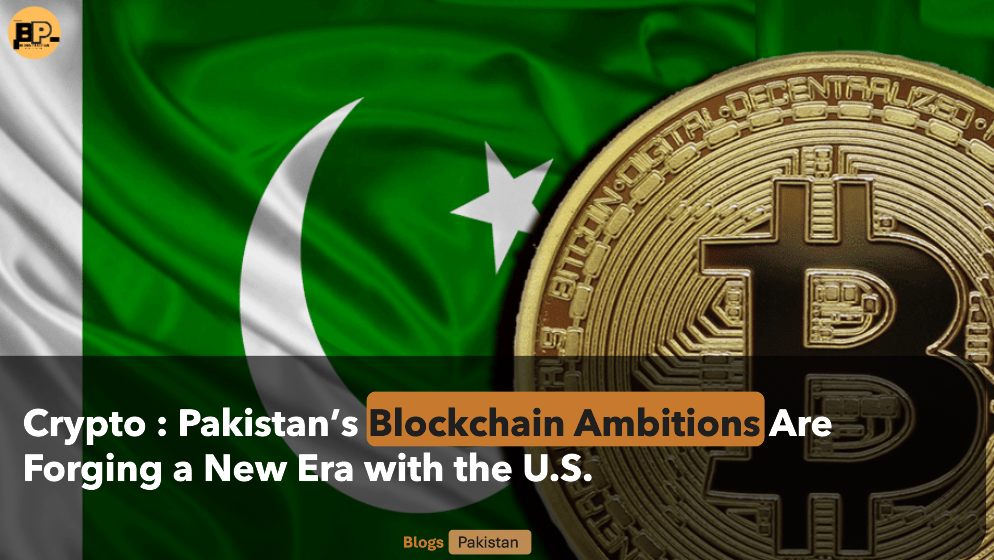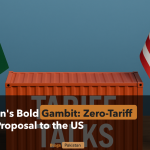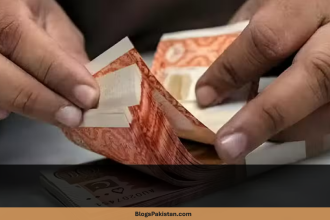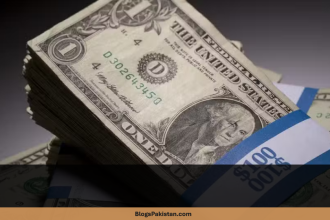In a world where digital currencies and artificial intelligence are rewriting global alliances, Pakistan is making a bold play to position itself for Crypto as the next frontier of innovation. The recent meeting between Pakistan Crypto Council CEO Bilal Bin Saqib and U.S. Acting Ambassador Natalia Baker isn’t just a diplomatic formality—it’s a glimpse into a future where blockchain becomes the language of international collaboration.
The Meeting That Could Redefine US-Pakistan Relations
From Geopolitics to Blockchain Partnerships
On the surface, Pakistan and the U.S. have historically navigated a complex relationship shaped by security and aid. But on April 25, 2024, the script flipped. In a sunlit conference room in Islamabad, Saqib and Baker discussed a vision far removed from traditional diplomacy: harnessing crypto and AI to empower Pakistan’s youth and bridge economic divides.
Key discussion points included:
- Launching joint U.S.-Pakistan tech accelerators focused on blockchain startups.
- Creating virtual talent exchanges where Pakistani coders collaborate with Silicon Valley firms.
- Drafting MOUs to integrate Pakistan’s 220 million citizens—65% under age 30—into the global Web3 workforce.
As Saqib noted:
“Our youth aren’t just job seekers—they’re future CEOs of decentralized autonomous organizations (DAOs). This partnership is about giving them the keys to build.”
Why Pakistan? The Untapped Goldmine of Digital Talent
[Image: Collage of Pakistani students coding, with overlays of blockchain symbols and U.S. tech logos like OpenAI and Coinbase]
With a median age of 22, Pakistan boasts one of the world’s youngest populations. But until now, this demographic dividend has been overshadowed by brain drain and unemployment. The Crypto Council aims to reverse this by:
- Skill-to-Job Pipelines
Partnering with U.S. edtech platforms to offer certified courses in smart contract development, AI ethics, and NFT curation. - Startup Incubators
Connecting Lahore’s tech hubs with venture capitalists in New York and San Francisco. - Policy Advocacy
Lobbying for crypto-friendly regulations to attract blockchain giants like Ripple or Chainalysis.
Baker echoed the sentiment:
“The U.S. sees Pakistan’s youth as co-authors of the next digital revolution—not just participants.”
Blockchain as a Tool of “Soft Power”
The New Face of Diplomacy
Forget cultural exchanges or trade deals—the real diplomatic currency in 2024 is data sovereignty. By aligning with the U.S. on blockchain, Pakistan aims to:
- Combat Financial Exclusion: 77% of Pakistanis lack bank accounts. Crypto wallets could democratize access to global markets.
- Counter China’s Digital Silk Road: As Beijing expands its tech influence, U.S.-backed blockchain projects offer an alternative.
- Build Trust Through Transparency: Blockchain’s immutable ledgers could help Pakistan shed perceptions of corruption.
[Image: Infographic comparing traditional aid vs. crypto-driven partnerships]
The AI Factor: More Than Just Chatbots
While crypto dominates headlines, AI quietly underpins this partnership. Joint initiatives include:
- Agriculture 4.0: Using AI models to predict crop yields for Pakistan’s farming communities (43% of its workforce).
- Disaster Response: Blockchain-tracked aid distribution during floods, which displaced 33 million Pakistanis in 2022.
- Content Moderation: Combating misinformation with Urdu-language AI tools trained on local dialects.
Challenges on the Road to Web3 Dominance
Navigating Skepticism and Sanctions
Despite the optimism, hurdles remain:
- Regulatory Whiplash
Pakistan’s central bank has flip-flopped on crypto legality since 2018. Clarity is needed to lure investors. - Energy Costs
Bitcoin mining’s high electricity demand clashes with Pakistan’s chronic power shortages. - Geopolitical Tightrope
Balancing U.S. ties with China’s Belt and Road investments requires blockchain to be a neutral mediator.
What’s Next? A Five-Year Blueprint
By 2029, the Pakistan Crypto Council aims to:
- Train 1 million developers in blockchain/AI through U.S.-funded bootcamps.
- Launch a national digital currency backed by Ethereum-based smart contracts.
- Host the Karachi Web3 Summit—a Davos for decentralized tech.
[Image: Futuristic skyline of Karachi with holographic crypto tickers and drone-delivered NFTs]
Why This Matters for the Global Crypto Community
Pakistan’s 220 million people represent the largest untapped market after Nigeria. Success here could:
- Prove blockchain’s viability in solving real-world crises (remittances, identity fraud).
- Pressure rivals like India to accelerate their crypto policies.
- Position the U.S. as the architect of Web3’s ethical framework—countering China’s state-controlled metaverse ambitions.
Final Take: A Digital Marshall Plan for the Global South?
The U.S.-Pakistan crypto dialogue isn’t just about technology—it’s about rewriting the rules of engagement between superpowers and emerging economies. If successful, blockchain could become the 21st century’s answer to the Marshall Plan, lifting nations through code instead of cash.
As Saqib quipped in his closing remarks:
“We’re not mining Bitcoin; we’re mining potential.”
For Pakistan’s youth, that potential just went global.










